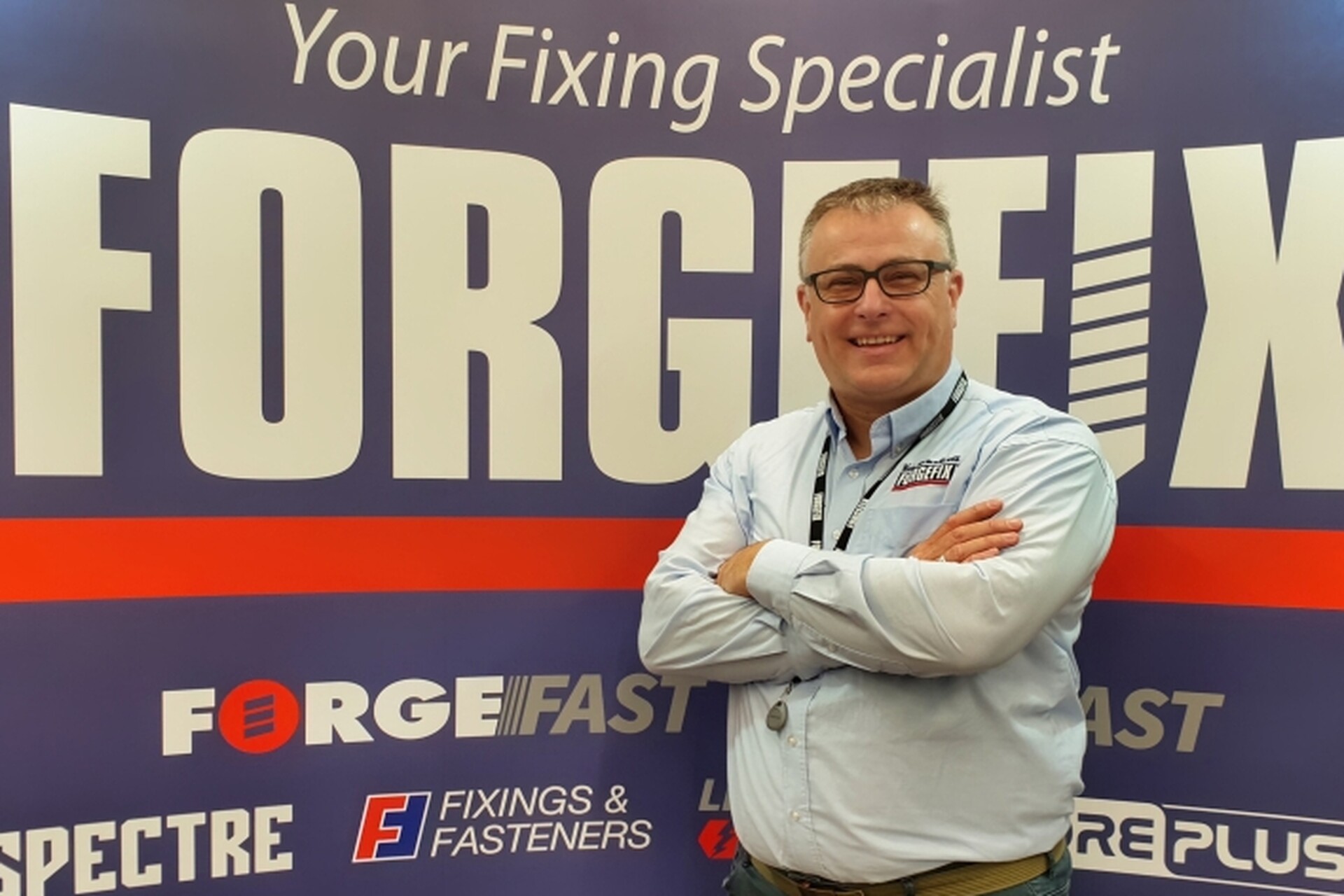INDUSTRY TRENDS & CHALLENGES: PAUL SWIFT, MD, FORGEFIX

By Marie Carter-Robb
In our latest Industry Insights series, Northern Engineer spoke with Paul Swift, Managing Director of ForgeFix to discuss current trends, challenges, and innovations in the manufacturing and engineering sectors.
In our latest Industry Insights series, Northern Engineer spoke with Paul Swift, Managing Director of ForgeFix to discuss current trends, challenges, and innovations in the manufacturing and engineering sectors.
Appointed as Managing Director in 2022, Paul Swift brings extensive experience from his previous roles, including Head of Sales at Zoo Hardware within the Tyman Group, Operations Manager at MASCO UK, and Business Development Manager at UPVC Maintenance Supplies. His diverse background has equipped him with exceptional leadership, negotiation, and management skills across multiple sectors.
Industry Trends and Challenges
What do you see as the most significant trends currently shaping the manufacturing and engineering industries?
"Homeshoring and inshoring are prominent trends—bringing production back to the UK or closer to home to regain control over supply chains and bolster sector confidence. Sustainability remains a key focus, with all things 'green' being a priority."
What are the biggest challenges your company is facing right now, and how are you addressing them?
"The greatest challenges stem from factors beyond our control—uncertainty surrounding government strategies, geopolitical tensions, conflicts in the Middle East and Ukraine, and ongoing wage inflation. Our approach is to manage what we can to ensure our business remains robust amidst these uncertainties."
Innovation and Technology
How is your company leveraging new technologies like automation, AI, or IoT to stay competitive?
"We've made substantial investments, including £3.5 million in warehouse automation and upgrading our computer systems to integrate AI tools like Microsoft's Copilot. We're also exploring additional AI opportunities to enhance efficiency and our service platform."
Can you share an example of a recent innovation at your company and its impact on your operations?
"We recently implemented Autostore, the world's fastest automated storage and retrieval system (ARAS). This has roboticised our picking process into a cube-based format, yielding significant benefits."
Sustainability and Environmental Impact
What steps is your company taking to reduce its environmental footprint and improve sustainability?
"We're scrutinising every aspect of our business through a sustainability lens. A notable example is shifting all our container shipments from road to rail at Felixstowe and Southampton, saving a million grammes of CO₂ and offering long-term financial and environmental benefits."
How do you see sustainability influencing the future of manufacturing and engineering?
"As the sectors strive for greater sustainability, production processes will move closer to home. While the UK may not yet have the complete infrastructure for all production stages, we anticipate certain components, packing, and assembly operations relocating nearer."
Workforce Development and Skills
What skills do you believe are most critical for the future workforce in manufacturing and engineering?
"Passion is crucial. We rely on individuals who think critically, exhibit enthusiasm, and embrace our culture. While we can teach systems, techniques, and methods, passion is innate. With it, individuals can learn everything needed to integrate successfully into our business and the wider industry."
How is your company investing in workforce development and training?
"I'm committed to providing opportunities for the younger generation. We have a robust apprenticeship programme, aiming for 10% of our workforce to be apprentices moving forward. Additionally, we offer in-house training to develop staff at all levels, nurturing the talent we already possess."
Globalisation and Supply Chain Management
How has globalisation affected your business, and how do you manage risks associated with global supply chains?
"Globalisation introduces risks. While cheaper products are advantageous, they're often sourced from distant locations. Events like COVID-19 and the Suez Canal crisis have highlighted the dangers of over-reliance on remote markets. Long-term, we must consider alternative partners, processes, and markets."
What strategies are you employing to ensure resilience and flexibility in your supply chain?
"We're investing in a larger facility, increasing stock levels, integrating new technologies to streamline ordering, and adopting new 'shoring' practices. These measures will enhance our flexibility, agility, and efficiency."
Leadership and Business Strategy
How do you maintain a culture of innovation and continuous improvement within your organisation?
"We encourage everyone to challenge everything—from the bottom up. By fostering a culture where all team members are empowered to question and refine processes, we ensure continuous improvement. Teaching and learning from each other are integral to maintaining robust internal processes."
What is your vision for the future of your company, and how do you plan to achieve it?
"This year's theme has been 'delivering the vision'—consolidating all products under one roof, embracing automation, updating our systems, and exploring AI. Looking ahead, I want our merchants to have zero dead stock—always moving inventory. We aim to be a service-driven company, leveraging the latest technology to provide top-tier service."
Paul Swift's leadership at ForgeFix exemplifies the proactive approach needed to navigate the evolving landscape of manufacturing and engineering. Through a focus on sustainability, technological advancement, and workforce development, he is steering the company towards a future defined by resilience and adaptability.




